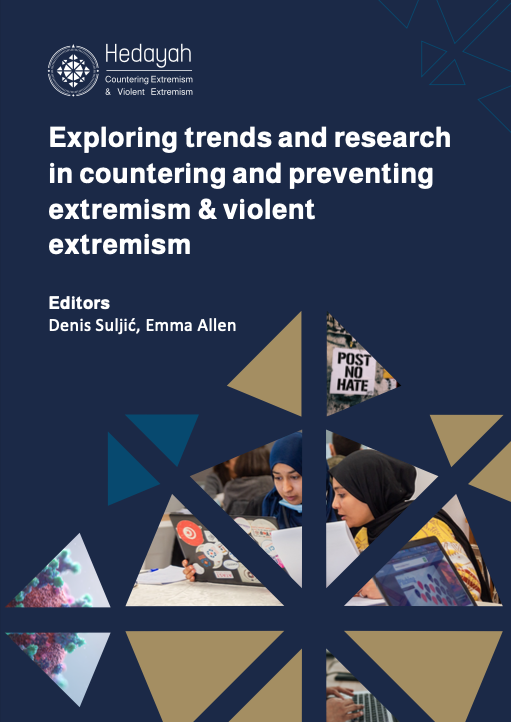Between 2021 and 2023, WwB implemented three successive iterations of its ‘MotherSchools: Parenting for Peace’ Model in Dhaka, Bangladesh with its local partner Manusher Jonno Foundation. The programme in Dhaka, which is part of a multi-country project supported by the L’Oréal Fund for Women, saw fifteen groups convene over the course of three years across ten wards. This impact report offers an overview of the MotherSchools project in Bangladesh, introduces WwB’s impact model, and presents the impact findings based on quantitative and qualitative data from the perspectives of project stakeholders, including Participants, Teachers, and Notetakers.
Although there are varying accounts about known terrorist organisations operating in Bangladesh, research suggests that there is a growing trend of vulnerable youth who are being recruited and radicalised by both local and transnational terrorist groups. Unemployment, political unrest, and lack of identity are key drivers, while peer groups, online recruitment, and mentors, or community leaders, tend to be the main mechanisms of radicalisation in Bangladesh. Moreover, there is early research that also indicates an increase in the number of women in Bangladesh who are being targeted by extremists to play more active roles in their organisations. Based on discussions with local authorities, academic experts, and policymakers, ‘concerns were repeatedly raised about the intensifying polarisation within the country and the lack of avenues for open public discussion about the politics of religion in the country’. Dhaka is one of the most densely populated cities in the world, according to the World Bank. There are also a number of reports, particularly in Bangladesh, that discuss the increasingly active role that female jihadists are playing in local and transnational terror groups, rather than their typical submissive or domestic roles. According to police and news reports, a growing number of radicalised women have been arrested in Dhaka and other neighbouring districts. ISIS in particular has started to shift their strategy and utilise women more and more as suicide bombers, recruiters, combatants, and translators for propaganda.
“In Bangladesh, we women are facing violence and discrimination all the time. This can [be] domestic violence and we also face extremism. Physical abuse. Although it is a Muslim country, it does not work this way. Peacefully.”
– MotherSchools Notetaker, Bangladesh 2021
“The biggest concern right now is political violence. And this political violence is associated with extremism. Some communities or groups have no tolerance towards other groups. This is happening under the umbrella of religion. This kind of violence is a burning issue.”
– MotherSchools Notetaker, Bangladesh 2021
Executive Summary: Participant Perspectives
Below is an overview of some of the key findings from the perspective of the Participants who went through the programme, receiving approximately 40 hours of training in PVE (preventing violent extremism), childhood development, security, peacebuilding, and communications.
Confidence | Participants articulated a former lack of confidence in expressing themselves. After the MotherSchools sessions, they now see themselves as an influential part of society. They have more confidence to speak out and feel equipped to help others.
Competence in Parenting | Participants were previously concerned about the absence of examples and guidance on parenting with greater mindfulness. They expressed how the teachings from MotherSchools transformed their approach to child-rearing.
Competence in PVE/Preventing Drivers to Violence and Extremism | Participants lacked the knowledge to understand extremism and early warning signs of radicalisation. They now have a clearer idea of these concepts and know what they must improve at home to avoid potentially negative changes in their children.
Applying the Knowledge | Participants previously had trouble communicating with their children, which in turn affected their relationship with them. After attending MotherSchools, they have developed new skills to handle conflict and have deeper conversations.
Breaking the Silence | Participants voiced topics that were considered taboo and had previously prevented them from talking freely at home. During MotherSchools sessions they were able to disclose certain events and problems they face and through sharing, realised they are not alone.
Leadership | Participants previously did not feel valued by others in their community. After attending MotherSchools, they noticed a significant change in how they are perceived. They became more comfortable being outspoken and in making decisions for themselves
Trust | Participants were used to having to keep everything to themselves. During MotherSchools, they created a safe space to share personal information, as well as their worries and concerns. For many Participants, this was the first time they were able do this.
Norms | Formerly, Participants did not feel they had the right to make any decisions at home or to share their opinion. After attending MotherSchools, they express being consulted more by their husbands regarding the household and decisions about the future.
Networks | Participants had previously been missing a feeling of community and mutual support. Through MotherSchools they were able to create a strong bond within their groups, forming a network that has become deeply important to them.
To read more on the impact of MotherSchools Bangladesh 2022, read the full report.



